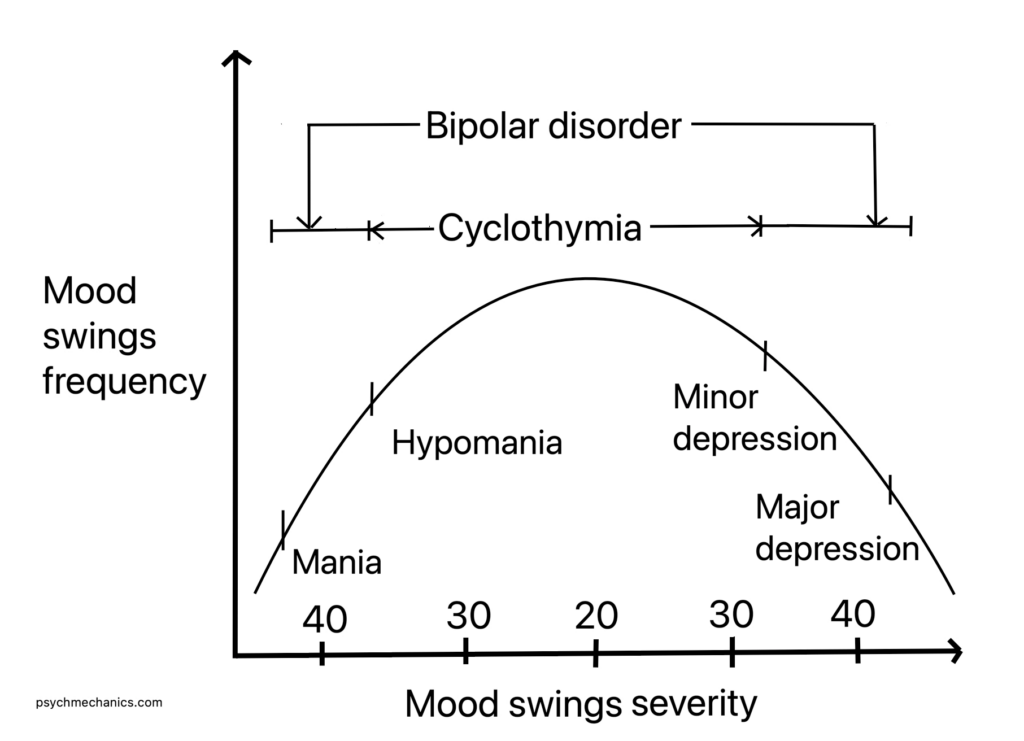Cyclothymia is derived from the Greek “kyklos”, meaning “cycle” and “thymos”, meaning “mood”.
A person with cyclothymia or cyclothymic disorder experiences frequent mood cycles or mood swings.

While it’s normal for people to experience mood swings from time to time, those shifts in the mood don’t typically interfere with day-to-day activities.
When mood swings become severe and more frequent, they interfere with a person’s work life, health, and social life. Intense and frequent mood swings are symptomatic of cyclothymia.
In cyclothymia, a person oscillates between periods of hypomania– a euphoric and energetic state- and minor depression– feeling low.
Cyclothymia vs. Bipolar disorder
When mood swings are less frequent but highly severe, the person has bipolar disorder. Hence, cyclothymia is a milder version of bipolar disorder.
The highs (hypomania) are high but not as high as in bipolar disorder (mania). The lows (minor depression) are low but not as low as major depression in bipolar disorder.

Taking the cyclothymia test
This test has 20 items on a 5-point scale ranging from Strongly agree to Strongly disagree. It has two sub-scales for hypomania and minor depression.
This test is by no means a diagnosis. It indicates the probability of cyclothymia. If you believe your mood swings are significantly disrupting your life, you’re advised to seek professional help.
The test is entirely confidential, and we don’t store the results in our database.

